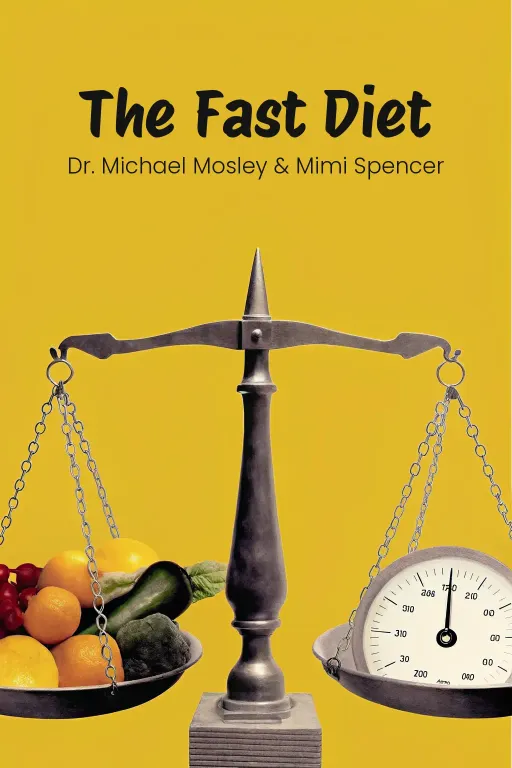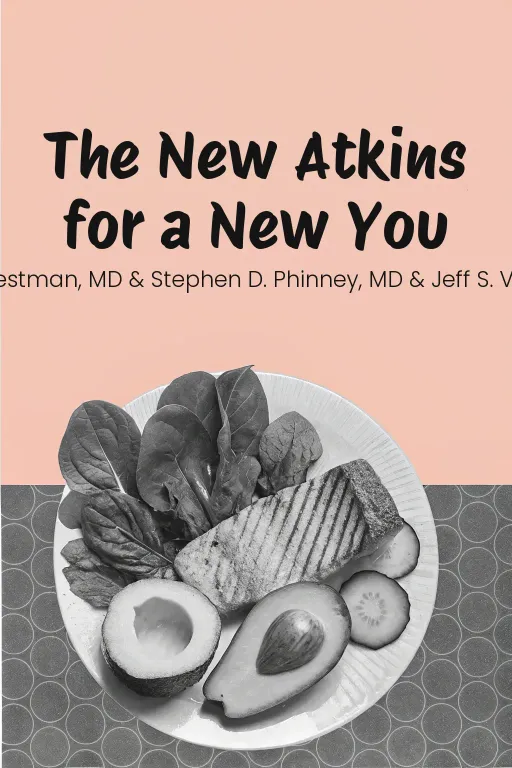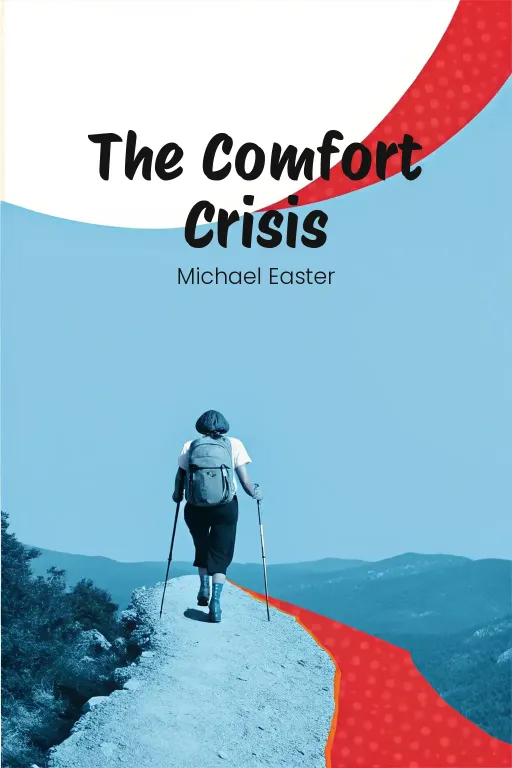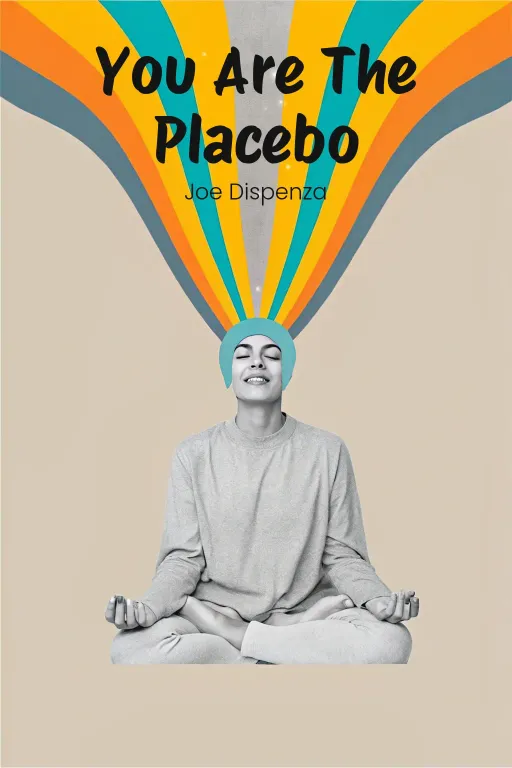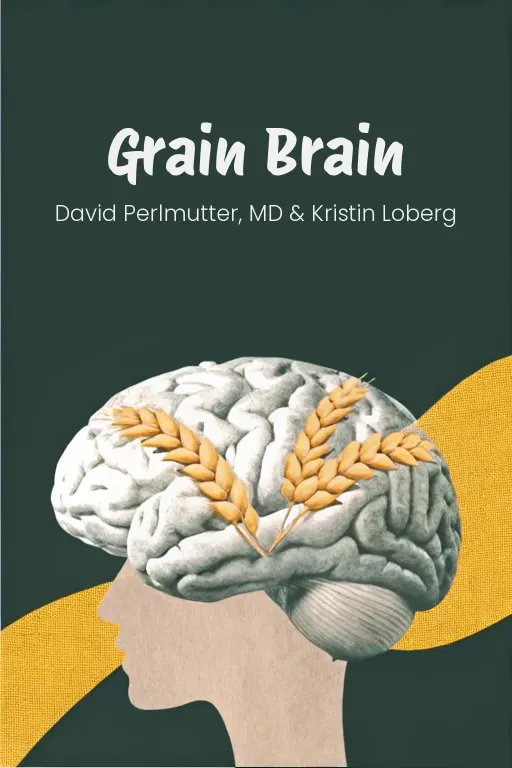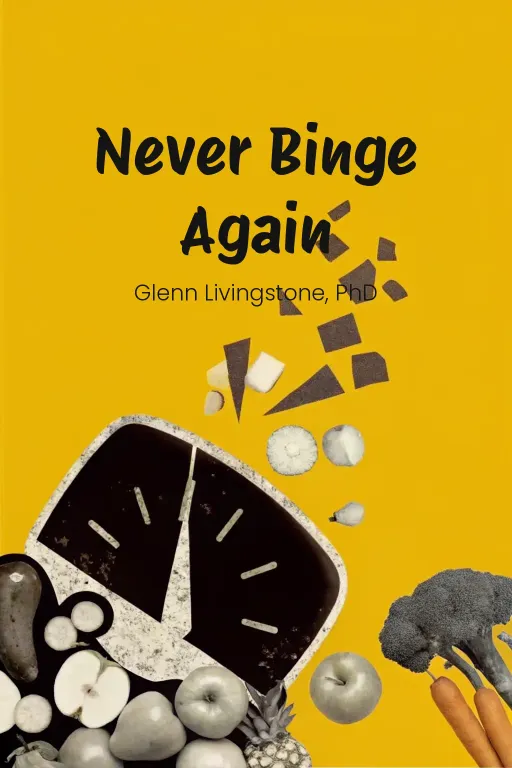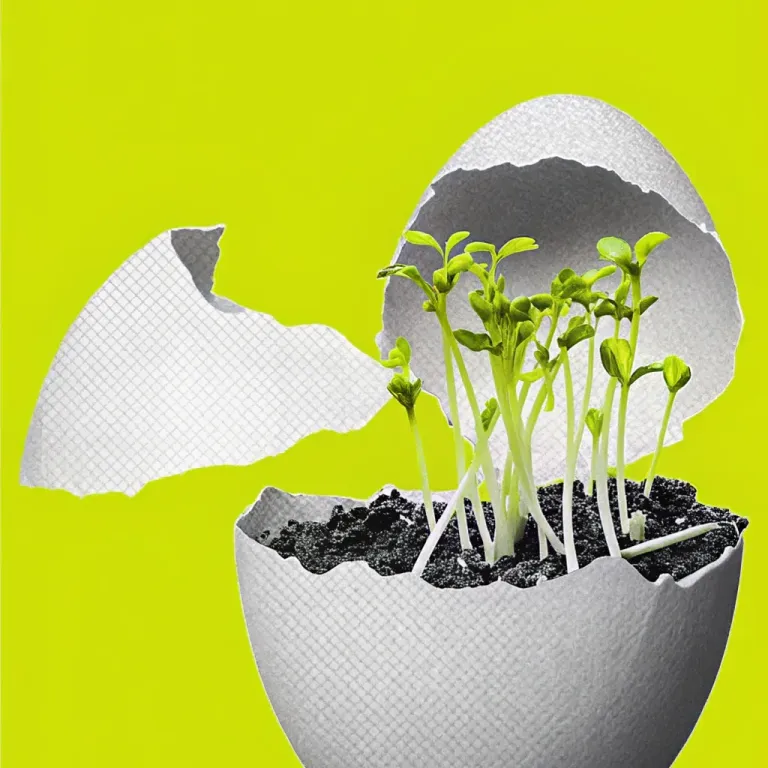
Cheat the Odds: Keys to Radical Healing
Podcast by Beta You with Alex and Michelle
Surviving Cancer Against All Odds
Cheat the Odds: Keys to Radical Healing
Part 1
Alex: Hey everyone, welcome back! Have you ever heard one of those incredible stories, you know, someone diagnosed with terminal cancer, told there's almost no chance, and then… they make a complete recovery? Almost sounds like a fairy tale, doesn’t it? But today, we’re really diving deep into that phenomenon. Michelle: Fairy tale might be putting it mildly. More like… is this even real? Is it just dumb luck, or is there something… more? I'm definitely curious, but my skepticism is on high alert. Alex: Exactly! That's the question that drove Kelly A. Turner, Ph.D., to write Radical Remission. She spent years studying these extraordinary cases of spontaneous cancer remission, and identified nine key factors that kept popping up. These are things like making really conscious lifestyle changes and building deep emotional and spiritual strength. Michelle: Nine factors, eh? Let me take a wild guess. We're talking green juice, yoga, and thinking happy thoughts? Sounds like your standard wellness guru prescription. Alex: Well, hold on a second. Turner doesn’t just rely on anecdotes. She backs up these personal stories with actual research, showing how these survivors adopted a truly holistic approach to their health. They focused on balancing their emotional, spiritual, and physical well-being, really taking control of their health. That's the key here, it's about empowering patients. It’s giving them the tools to become active participants in their own healing. Michelle: Okay, I'm intrigued. So, what’s our plan of attack today? Alex: We're going to unpack three major takeaways from the book. First, we'll break down those nine healing factors – what they are and how they work. Second, we’ll explore the power of patient empowerment and why that belief in taking charge can be so transformative. And finally, we’re going to look at the role of emotional and spiritual health – can things like happiness, forgiveness, and meditation actually make a difference? Michelle: Alright, nine factors, empowerment, and a spiritual tune-up. I am on board. Let's see if we can actually find some solid science here, or if it’s just wishful thinking dressed up as medical advice.
The Nine Key Factors of Radical Remission
Part 2
Alex: Okay, Michelle, let’s dive into the first big idea – Dr. Turner’s nine key factors for radical remission. Think of it as, well, the ultimate cheat sheet for beating the odds, even when the medical establishment raises its eyebrows. First up: diet! Michelle: Ah, diet. Knew we’d end up here. Broccoli instead of brownies, right? But seriously, Alex, does changing what you eat really make that much difference when you’re staring down stage 4 cancer? Alex: Absolutely! Dr. Turner found that almost every single radical remission survivor made serious dietary changes. Take Ron, for example—he beat prostate cancer by cutting out all sugar. He wasn’t just watching his waistline, he was cutting off the fuel supply to the cancer cells themselves! Michelle: Okay, starve the beast. Makes sense in theory. But it can’t just be about skipping dessert, can it? What else did Ron do? Alex: Oh, it was way more than that. He switched to a plant-based, organic diet, loaded with greens, and even started juicing. Over time, his PSA levels dropped dramatically, without surgery. So, this wasn’t just a diet, Michelle, it was a total lifestyle overhaul! Michelle: I hear you. But one story doesn’t prove anything, right? What about the other cases? Did everyone just ditch sugar and call it a day? Alex: Not at all. Jane Plant is another great example. She had recurring breast cancer and started to wonder about dairy. She found some pretty alarming research linking hormones in dairy to cancer cell growth. So, she cut it out completely, and her condition improved significantly. For her, ditching dairy was the turning point. Michelle: Hold on, so milk is now the bad guy? I mean, we’ve been drinking it for centuries. Was she lactose intolerant, or are we saying that dairy is generally toxic for cancer patients? Alex: It’s not about demonizing dairy, Michelle. It’s about truly listening to your body and making informed choices. Jane’s case shows how certain foods can make underlying health issues worse. The real takeaway? Diet can either fuel health or feed disease. Michelle: Right, so ditch the junk food, load up on kale… sounds simple enough. But, the cynic in me wonders, how do we really know that these dietary changes are "the" reason for remission, and not just something that happened alongside other treatments? Alex: That’s a critical point. Dr. Turner never claims diet alone cures cancer. It’s one piece of a much bigger puzzle. And speaking of big puzzles, let's move onto another key factor: taking control of your health. Michelle: Uh oh, "taking control." Does this mean firing your oncologist and Dr. Google-ing alternative treatments? Because if WebMD has taught me anything, it’s that self-diagnosing usually ends with a panic attack. Alex: Fair point, Michelle. But that’s not what we're talking about. It’s about becoming an active participant in your healing, not just a passive patient. Think of Shin Terayama, a kidney cancer survivor who combined conventional medicine with alternative practices, like water fasting. Michelle: Water fasting? Seriously? Going days with nothing but water? That sounds more like a Hollywood detox cleanse than a real medical strategy. Alex: I know, it sounds extreme. But for Shin, it was transformative. He used fasting to cleanse his body and stabilize it during treatments. He also practiced intuitive eating – choosing foods based on what his body was telling him it needed. That approach gave him a sense of control over his healing, and it aligned with his spiritual beliefs, too. Michelle: So, it's less about cookie-cutter solutions and more about tuning into your own inner radio. I can see how that would help mentally, at least. It's empowering to feel like you have a say in your treatment. Alex: Exactly. Shin’s story really illustrates that balancing conventional medicine with personal insight can be seriously impactful. And that brings us to an even more intangible factor: following your intuition. Michelle: Intuition? Okay, now we’re wading into woo-woo territory. Gut feelings versus hard data, Alex. Call me skeptical, but when does your "gut" trump a doctor's advice? Alex: It’s not about "trumping" anything! It’s about incorporating instinct with expert guidance. Many survivors found that trusting their gut was key to their journey. Take Wanda, for example. Even though she had traditional treatment options, she felt pulled toward exploring alternatives that just felt right to her. Michelle: Alternatives like… crystals and chanting? Alex: Michelle! Come on. Not quite. Wanda incorporated therapies like acupuncture and specially tailored nutrition plans. Her intuition guided her to treatments that fit her emotional and physical needs, which made her more confident in the recovery process. Michelle: So, by trusting her inner compass, she built a plan that she actually believed in. That makes sense – confidence counts for something. Alex: Absolutely. Gemma, another survivor, told us how pairing intuition with mindfulness strategies, like meditation and massage, led to big improvements. When survivors align their decisions with what feels right for their unique situation, it adds a whole new layer of purpose and agency. Michelle: Alright, so listening to your inner voice isn't just nonsense, it’s about connecting what feels right with what works. But I’m still stuck on this: Where does intuition stop, and evidence-based medicine take over? This one feels kinda tricky. Alex: Valid concern. But think of intuition as a supplement, not a replacement. It's about bringing the personal to the professional – melding instinct with insight. Michelle: Okay, Alex, I'll concede that intuition and taking charge might bring some real benefits to the table. So, what's next on this roadmap to remission?
Empowerment Through Active Participation
Part 3
Alex: Right, so understanding these factors really sets the stage, Michelle, for seeing how they all work together in actual recovery stories. And the big theme here is empowerment through active participation. We're talking about shifting the focus to how patients can take back control, become, like, co-creators in their own healing, you know? It's about owning the process, not just the medical stuff but also the emotional and even spiritual aspects. Michelle: Co-creators, huh? So I'm picturing patients writing up their own treatment plans and then, like, pitching them to their doctors? Is that where we're headed, a DIY health revolution? Alex: Well, in a way, yes, but it's really less about going totally rogue and more about true collaboration with healthcare pros. It’s about making informed choices, maybe adding complementary practices, and yes, trusting your own instincts. Remember Wanda? Michelle: Oh, yeah, Wanda. Acupuncture and holistic nutrition was her thing, right? Alex: Exactly. Wanda’s story really highlights how empowerment came from trusting her own intuition while still working with her medical team. She didn't ditch traditional medicine at all; she just added therapies tailored to her specific physical and emotional needs. That balance, you see, allowed her to actively shape her recovery. Michelle: Okay, but hold on. What does “listening to intuition” actually look like? Are we talking about just some, like, random gut feelings, or is there something more structured to it? Alex: So, intuition, as Turner describes it, it's really about self-awareness, right? It involves practices like mindfulness, journaling, or just quietly thinking about your decisions. These things help people connect with what truly resonates with them. Gemma, for example, she used mindfulness and really detailed journaling to sort of cut through the noise, all those overwhelming options, you know? This clarity guided her to use meditation with standard cancer treatments and helped her personalize her diet. Michelle: So, Gemma basically just asked herself, "What feels right?" and went from there. That sounds simple enough, but I bet it’s not easy when you’re facing life-or-death decisions. Alex: Exactly, Michelle. That personal clarity can be really empowering because it helps patients feel more aligned with their own path. And while intuition can be a compass, active participation involves, well, much more. For example, integrating alternative practices, like Shin Terayama did. Michelle: Ah, yes. Shin, the water fasting advocate. I still find that concept wild. Did that actually have a measurable impact on his recovery? Alex: You know, for Shin, it wasn't just the fasting, it was the whole combination of things. Fasting, intuitive eating, and emotional self-love rituals. All of these things helped his physical health but also his mental and spiritual resilience. Shin believes this holistic approach was key to his survival. Michelle: Alright, I get it. Fasting for a physical reset, eating what your body tells you it needs, and then topping it off with some emotional TLC. I mean, that does sound like it addresses multiple layers of healing, not just one single issue. Alex: Exactly, and that’s really what this empowerment model is all about—acknowledging that healing is multi-dimensional. When patients feel like they're actively driving their health journey rather than just being passengers, it often leads to unexpected, positive results. Michelle: But tell me this: does every patient who starts journaling and blending kale smoothies automatically get these benefits? What about those who do everything "right" but still don’t recover? Alex: That’s the tough part, Michelle. Turner’s work doesn’t promise outcomes, but it does promote agency. Empowerment isn't about guaranteed results; it’s about feeling connected and purposeful in the process. That sense of control can really improve mental health, even when facing uncertainty. Michelle: So, even if the physical results don't show up, the emotional and psychological benefits are still real. Like, finding solid ground in a storm even if the storm never ends, right? Alex: Exactly. It’s about reclaiming dignity and feeling like a participant, not just a passive recipient. That's empowering no matter what. Michelle: Okay, Alex. I'm starting to get why empowerment is the radical part of radical remission. But part of me still wonders, where's the line? When should you trust your gut or alternative therapies versus just completely following medical advice? Alex: Great question. And the answer lies in integration. It’s not an either-or scenario—it’s about working with your medical team to build a comprehensive and holistic approach. Everyone's journey is different, but that balance between science and intuition is where the magic happens. Michelle: Alright, I’ll give you this – agency, intuition, and active participation sound pretty transformative when applied strategically. But what about the broader implications of this model for healthcare itself? Is it sustainable for everyone?
Emotional, Social, and Spiritual Integration
Part 4
Alex: This empowerment naturally extends into the broader emotional and social dimensions of healing. And that brings us to our next big theme—emotional, social, and spiritual integration. Healing isn’t just about the body, Michelle. It's an interconnected journey involving our thoughts, emotions, relationships, and even that nebulous thing called the spirit. Turner’s research shows these layers work together in ways we’re only just beginning to understand. Michelle: So, what you're saying is, the formula isn’t “just” broccoli and belief – it’s a cocktail of emotions, a dash of community vibes, and maybe a sprinkle of transcendence? Sounds like a tall order, Alex. Where do we even “start” with untangling all these dimensions? Alex: Let’s kick things off with emotional healing, because suppressed emotions – you know, fear, anger, grief – can become physical stress that just undermines the body’s recovery. Turner shares the story of Joe, a lung cancer survivor, who spent decades bottling up trauma and pain. Only when he began therapy and “really” examined those emotional scars did his health “really” start to turn around. Michelle: Wait a second... so Joe’s emotional baggage was basically playing saboteur on his immune system? Do we have any idea “how” that unfolds chemically? Alex: Absolutely. Chronic stress from suppressed emotions floods the body with cortisol, a hormone that can suppress immune function over time. Joe's therapy, combined with self-reflection, allowed him to process those emotions and reduce the stress toll on his body. Over time, he felt a renewed outlook on life... and his physical resilience improved. Michelle: Okay, but what does "processing emotions" “actually” look like? It's not like we all have a manual for how to unpack decades of unresolved junk. Alex: That’s where techniques come in. Turner talks about things like guided journaling and visualizations. One example is the "waterfall solution," where people imagine a waterfall washing away their fears. It's a meditative, guided process that externalizes and addresses internal emotions. Michelle: Alright, I can picture that—literally. But let’s say someone’s not exactly the journaling type. Is there more to emotional healing than just, let’s say, yelling into a pillow or visualizing waterfalls? Alex: Of course. It’s about finding what works for the individual—therapy, mindfulness exercises, or even physical outlets like dance. Emotional release is as personal as it is powerful. And here’s the kicker: releasing those emotions creates bandwidth for hope and positivity to take root. Michelle: Hmm. So, shedding emotional dead weight essentially makes room for resilience. But emotional work sounds deeply personal. What about the outer world’s role in healing—friends, family, the social safety net? Alex: That’s the second dimension—social support. Loneliness is as damaging as some of the worst health risks, like smoking or heart disease. Survivors like Kathryn found strength in the friends who visited her, cooked her meals, and simply reminded her she wasn’t alone. She called it her "lifeline". Michelle: Alright, but physical presence aside, what’s the X-factor here? I mean, what makes someone bringing lasagna over more healing than, say, just Uber Eats arriving at the door? Alex: It’s about intentional, compassionate connection. Physical presence, hugs, hand-holding—it’s all deeply grounding. Rita, for example, had a network that literally surrounded her during treatments. That warmth and reassurance acted like an emotional fortress, helping her navigate the chaos of medical procedures. Studies even show that strong social bonds reduce stress hormones and improve immune responses, you know? Michelle: So being part of a community is, quite literally, medicine. But tell me—how do you “sustain” that support system? People showing up every day isn’t exactly scalable. Alex: True, but it's not always about constant presence, Michelle. It’s about quality over quantity, you know? Even small but consistent gestures—a phone call or handwritten note—can make a profound emotional impact. Those micro-connections remind you that you’re never fighting alone. Michelle: Fair enough. Support systems clearly play a huge role, but let's not forget the last dimension you hinted at—the spiritual. Now, I’ll admit, that one feels harder to pin down. What does "spiritual connection" “even” mean in this context? Alex: It’s not necessarily religious. It’s about feeling connected to something larger than yourself, be it community, nature, or even inner peace. Matthew, a brain cancer survivor, found solace in a daily meditation practice combined with community prayer and energy healing. Michelle: Meditation I get—it’s got measurable effects on stress and focus. But energy healing? That’s where I start raising an eyebrow. Please tell me Matthew wasn’t waving crystals around. Alex: No crystals involved, Michelle! Energy healing, in Matthew’s case, involved touch-focused practices that aim to channel positive energy “into” your body. When paired with things like meditation, it gave him a deep sense of calm—even as he faced a terminal diagnosis. Michelle: And there’s science backing his experience? Or at least something that explains the biology behind, say, "calmness helping recovery"? Alex: Absolutely. Meditation has been shown to lower stress-related genes and reduce inflammation. Spirituality, whether through prayer, gratitude, or mindfulness, shifts your mindset from fear to peace, which influences everything from immune function to cellular repair, you see? Michelle: So, really, spirituality’s utility is in changing “how” you approach adversity. It’s less “magic,” more mental reframing paired with physical benefits. Got it. But what happens when someone has “no” spiritual inclination at all? Alex: The substance of the connection matters more than the label. Whether someone finds grounding in writing poetry, hiking, or even bonding with loved ones, the core idea here is tapping into something that renews your sense of meaning and peace. Michelle: Okay, I’m coming around to this multidimensional perspective. Emotional release clears internal roadblocks, social ties shore up your resilience, and spirituality brings clarity and calm. But Alex, is there an interaction here—or are these dimensions more like parallel tracks? Alex: They absolutely interact, Michelle. As you work on one dimension, it often strengthens the others. For example, releasing emotions might help build deeper, more meaningful connections with others, while finding spiritual clarity can prime you emotionally for forgiveness or gratitude. It’s all a feedback loop, kind of like dominoes. Michelle: So, it’s less "pick one and hope for the best" and more "start anywhere, and let the rest unfold". Makes sense. But Alex, here’s my million-dollar question; how does someone balance working on “all” this without feeling completely overwhelmed? Alex: By focusing on small, consistent actions. You don’t need to tackle everything at once. Pick one practice—maybe journaling or connecting with a friend—and see where that takes you. Healing isn’t linear; it’s about building momentum. Michelle: Alright, Alex, I’ll admit—connecting the dots across these dimensions does paint quite the picture. Emotional release, social support, spiritual alignment... it’s like assembling a survival toolkit for both the body and soul.
Conclusion
Part 5
Alex: So, in a nutshell, “Radical Remission” really champions a well-rounded way of healing that goes beyond just what doctors prescribe. It shines a light on nine crucial elements—things like revamping your diet, mending emotional wounds, leaning on your support network, and nurturing your spiritual side. It’s all about empowering patients to really drive their own recovery. We're not saying ditch science, but rather blend it with your own gut feelings, a sense of control, and a profound connection with yourself and others. Michelle: Yeah, and the big ideas we've been unpacking really come down to finding that sweet spot, that equilibrium, don’t they? Harmonizing the mental and physical, the scientific and spiritual, looking after yourself while also accepting care from the outside. Now, the skeptic in me is still a bit wary, sure, but I can't deny that sparking hope and a sense of control—even if it isn't a magic bullet—can seriously reshape the whole experience. Alex: Precisely! Healing is so individual, not a cookie-cutter thing at all. And if there's one golden nugget in this book, it’s that those small, focused actions can snowball into something truly amazing. Maybe it’s just pausing for a mindful moment, reaching out to a friend, or consciously choosing food that fuels you—body and soul. Every little bit helps. Michelle: So, folks, here’s what I want you to chew on: whether you're dealing with a health scare or not, think about the small tweaks you can make to boost your own well-being. What's one thing you can do today to tune into your body or lift your spirits? Alex: Because if these stories have taught us anything, it’s that healing is more than just treatments and procedures—it's about bouncing back, finding strength in community, and taking the reins of your own life. Truly radical stuff. Michelle: Alright, Alex, color me... intrigued. Maybe I’ll even try some meditation tonight when I get home—though I’m definitely not giving up my cheese. Gotta have that balance, right? Alex: Hey, progress over perfection, Michelle! See you next time, everyone!

